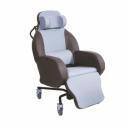Sata3 HBA reccommendation
-
Featured Topics
-
Topics
-
5
-
QMalcolm ·
Posted in General Discussion1 -
FrozenHydrangea ·
Posted in Troubleshooting0 -
LingoInv ·
Posted in Graphics Cards0 -
0
-
0
-
11
-
1
-
EzioWar ·
Posted in CPUs, Motherboards, and Memory1 -
Zham ·
Posted in Troubleshooting17
-
-
play_circle_filled

Latest From Linus Tech Tips:
I Am Not Buying A Super Computer - WAN Show May 3, 2024

.png.255947720031a641abdac78e663b681c.png)













Create an account or sign in to comment
You need to be a member in order to leave a comment
Create an account
Sign up for a new account in our community. It's easy!
Register a new accountSign in
Already have an account? Sign in here.
Sign In Now